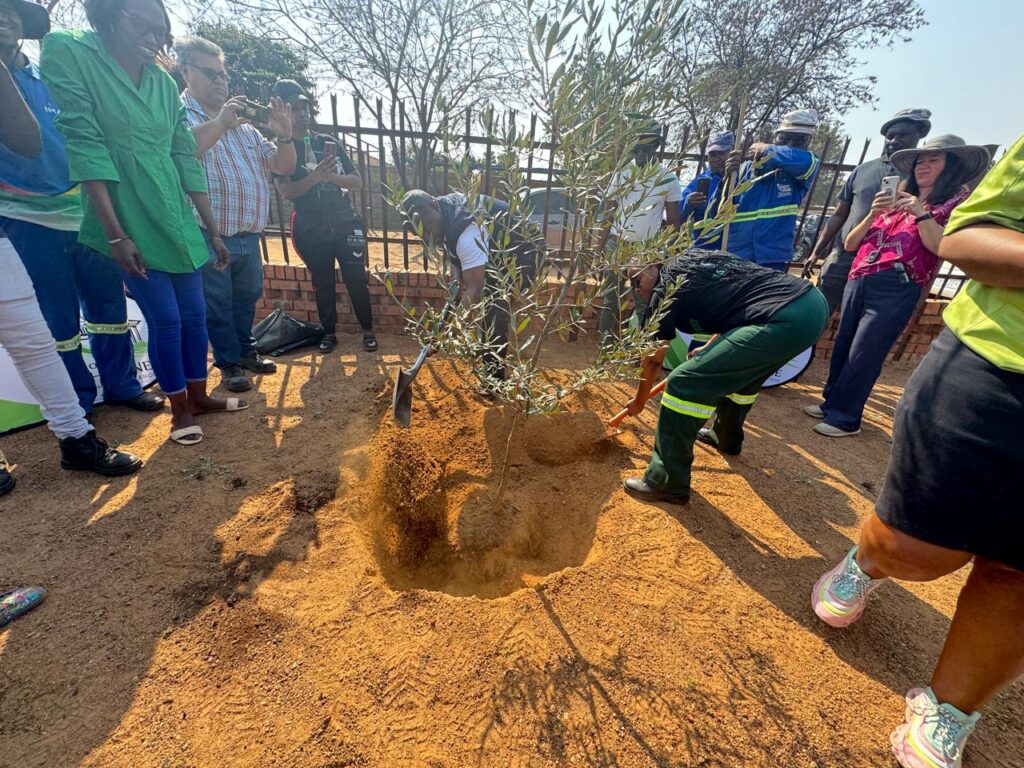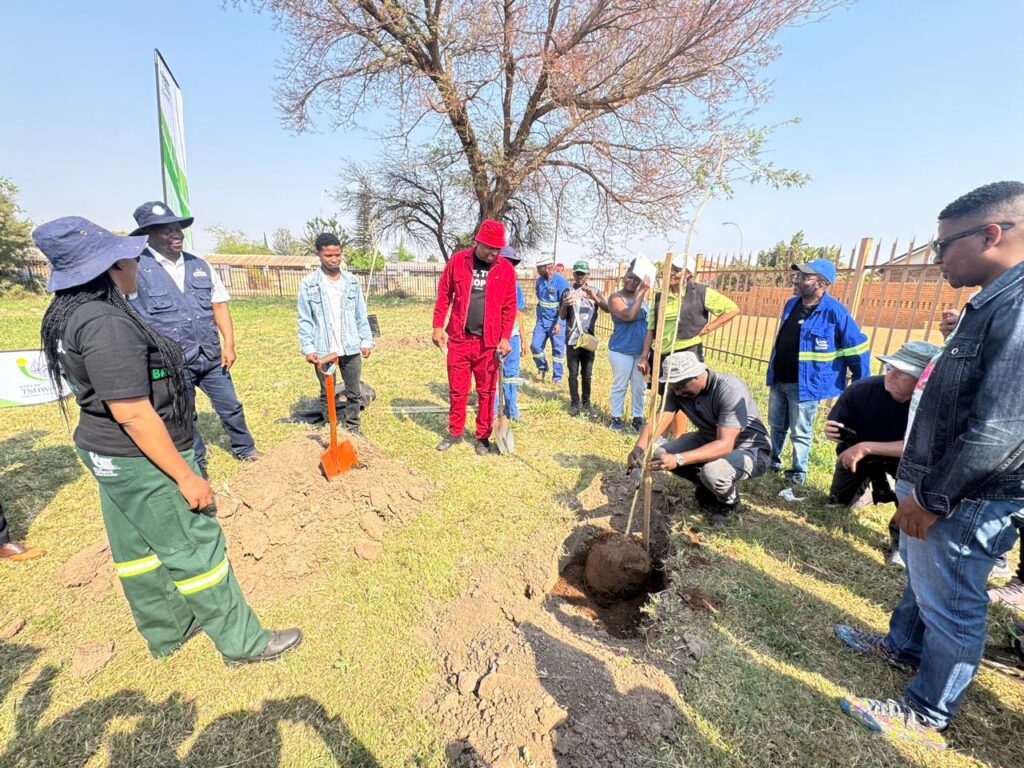 Nasiphi Moya
Nasiphi Moya
City of Tshwane Executive Mayor plant a tree in Hammanskraal, Tshwane photo supplied
By Nasiphi Moya
City of Tshwane Executive Mayor
On 1 September, I was joined by the MMC for Environment, Cllr Obakeng Ramabodu and Santam insurer at the launch of Arbor Month at Unit D Park in Hammanskraal.
During the event, Santam announced they would be donating trees valued at R250 000 to support the City’s Urban Greening Programme with its aim of planting 300 000 trees over three years as we transition to a climate-responsive urban planning model.
 City of Tshwane officials plant trees in Hammanskraal Tshwane
City of Tshwane officials plant trees in Hammanskraal Tshwane
This donation is a major boost to our Urban Greening Programme as it sets the pace to accelerate our greening efforts.
The City also extends its thanks to the Gauteng Department of Agriculture and Rural Development their kind gift of 250 indigenous and fruit trees for the launch.
These particular trees will be given out to schools, creches, and old age homes in Region 2 via Hammanskraal community forums during September.
The City of Tshwane also commits to donating 200 trees to schools based in townships as part of our U20 Legacy Programme.
Our townships deserve to resemble other parts of our city.
Heat mapping research shows heat stress is far worse in the City’s less green areas.
Informal settlements and townships bear the brunt of extreme high temperature.
As a city, we have adopted the Urban Greening Programme under the Urban20 (U20) legacy project to help mitigate the impact of urban heat island effects and projected heat-induced climate risk zones through mass tree planting.
However, government efforts alone are not enough to achieve this ambitious goal.
Collaborations and partnerships are essential in accelerating climate solutions.
We invite stakeholders and individuals to collaborate with us, embrace environmental stewardship by pledging to plant trees and start food gardens, thus leaving a positive legacy for future
generations.
To build a climate-resilient city as a team, the City of Tshwane welcomes discussions with different organisations regarding the programme’s participation.
Now is the time to adopt proactive, coordinated responses that build resilience and mitigate the worst effects of climate change.
Tshwane Talks readers have been able to read stories in this publication for free for over two years now. We still want our readers to access our stories for free, but we are asking those among our readers who can afford it to contribute at least R30 a month to cover some of the costs of publishing this independent, non-aligned online newspaper which gives a voice to all sectors of society irrespective of race, colour, creed, religion, or political affiliation. You may make your contribution by depositing at least R30 a month into Tshwane Talks' bank account. Details are as follows:
Bank Details
Bank: Standard Bank
Account Number: 10225548834
Account Type: Cheque Account